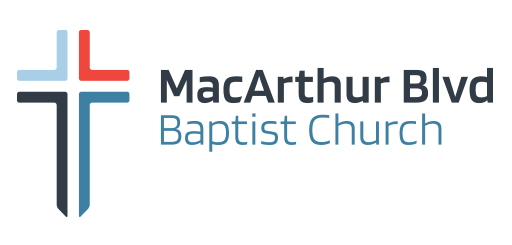What does an assembly do when assembling isn’t allowed? The church, to be sure, is an assembly. The word we know as “church” comes from the word ekklasia, which literally means, “an assembly,” a gathering of people. The church is an assembly of those who have been brought into a covenant relationship with God through Christ. This is what has made adjusting to a global pandemic so difficult for churches around the world. How is an assembly supposed to function when assembling is not allowed?
I have been so encouraged the past several weeks to see how churches, pastors, and Christians have overcome the challenges of this pandemic and have adapted to what is far less than ideal circumstances. God’s people have not allowed social distancing to keep them from engaging in ministry, worshiping God, and living on mission. Our God is not bound by geography; He is not trapped in a building. He is actively working out His sovereign plan for the world, for His church, and for all His children through this pandemic. Jesus is still building His Church, and the restrictions of a pandemic will not overcome it!
Still, social distancing has forced pastors to wrestle with questions that are both practical and theological. One such question is whether or not churches should participate in the Lord’s Supper, whether virtually or by drive-through, during this time of social distancing. I want to say upfront that there are pastors and churches that I highly respect that are answering this question differently. We do not believe this to be a sin issue. There is room for disagreement on this question and a need for charitable understanding. What I offer here is simply an explanation of why the pastors at MacArthur Blvd have decided that the wisest course of action for our church family is to refrain from the Lord’s Supper until we can receive it together in a physical gathering. Two primary considerations led us to this conclusion:
First, consider what the Lord’s Supper is.
This first consideration has to do with the nature of what Communion is. The Lord’s Supper is not simply a matter of eating crackers and drinking juice. It is a unique opportunity for God’s people to commune with God and with each other. When Paul is describing the Lord’s Supper in 1 Corinthians 11, he uses the phrase, “when you come together,” five different times (1 Corinthians 11:17, 18, 20, 33, 34). This meal was intended for the saints to share when they are together. And the togetherness of the meal is not inconsequential. It strikes at the heart of what communion is.
Consider 1 Corinthians 10:17, “Because there is one bread, we who are many are one body, for we all partake of the one bread.” Members of a church all eating the same bread symbolizes that we have been united in the same body. Those who were previously scattered have been brought together and made one through the crushed body and spilled blood of Jesus. The cross did not only reconcile us to God (vertically); it reconciled us to one another (horizontally). Our union to Christ is precisely what united us to one another. Our togetherness is a part of what we are celebrating when we participate in the Lord’s Supper.
The Lord’s Supper is not a private meal. It is a family meal, and the family being able to gather together is an important feature of the meal because our togetherness is central to what we are celebrating in the meal. For this reason, the idea of taking the Lord’s Supper while not truly being together seems to undermine the nature of the meal itself.
Second, consider our longing.
We want to avoid two extremes during this season. On one hand, we cannot allow this virus to paralyze us. COVID-19 cannot stop the church, and it cannot stop our God. We must continue to engage in worship, in community, and in God’s mission, even if that engagement looks temporarily different.
On the other hand, conducting services and groups online is not ideal, and it would not be healthy long-term. There should be a longing in our souls to be together again. We do not need to be defeated, but we should lament having to remain distant from one another during this season. It would be disingenuous and unwise to pretend as if the way we have to connect right now is no worse than before, as if nothing has truly changed. This is a trial. Distance is not God’s intention for His people. God intended for His people to be together, not just virtually, but physically.
We need to protect our hearts from growing satisfied with our distance. We need that longing to be together again to continue to burn within our souls. We need not to pretend as if this is business as usual. For this reason, we believe it is wise to refrain from the Lord’s Table until we can receive it together. Sitting at His table together is a part of what we should be looking forward to—what we are longing for—during this season of being apart. Keeping Communion as a meal we will share together, as it was intended to be shared, will help protect our hearts from growing satisfied with our distance.
We understand and respect the Christians, pastors, and churches who come to a different conclusion on this question. Nevertheless, these are the primary considerations that led us to decide to refrain from celebrating the Lord’s Supper until we can be together again. How sweet that day will be, when we can come back together to worship our Savior, sit at His Table, and celebrate our fellowship with God and each other.
